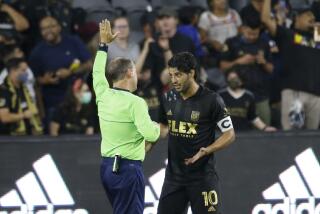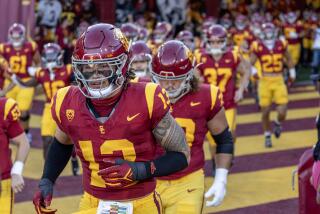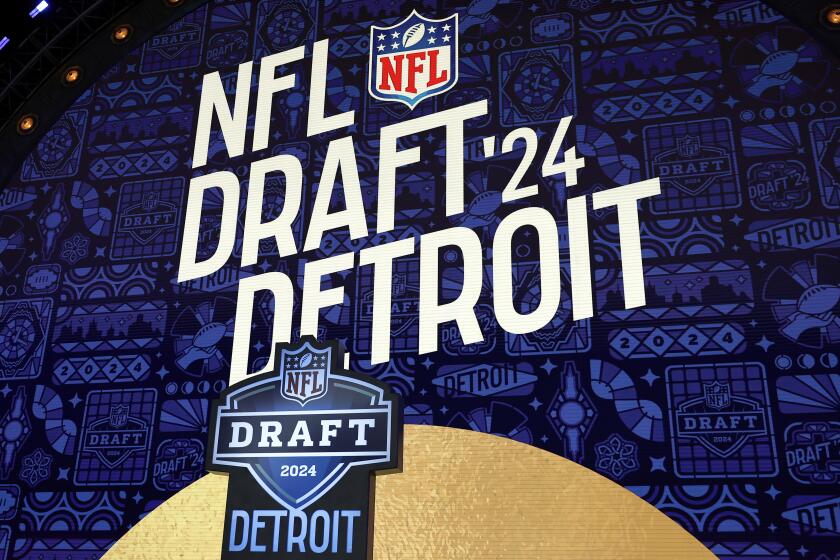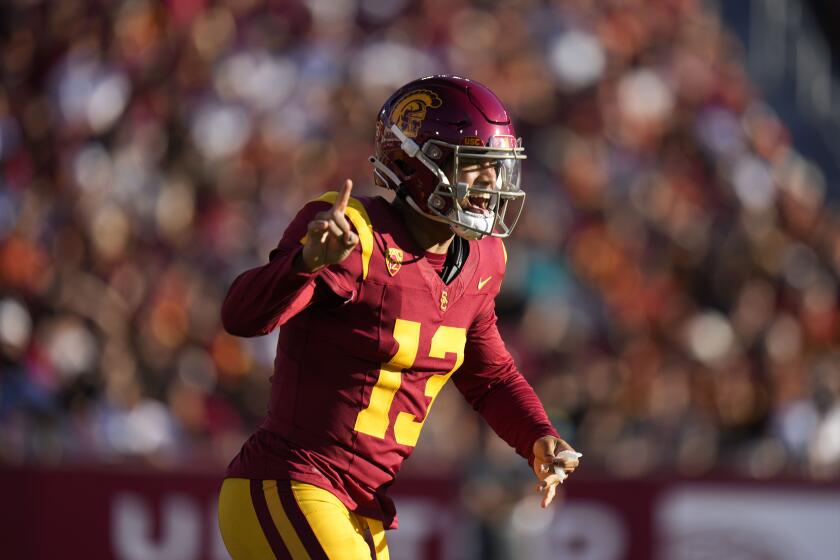NHL, players’ association agree to let federal mediators look at labor dispute
The NHL and NHL Players’ Assn. agreed Monday to allow the Federal Mediation and Conciliation Service to bring fresh perspective to a dispute that’s threatening to devour the 2012-13 season.
The FMCS, a government agency that has no ties to either labor or management, helps resolve conflicts in industry, government agencies and communities. Mediators’ recommendations are not binding.
Scot Beckenbaugh, acting head of the FMCS during an unsuccessful effort to resolve the 2004-05 NHL lockout, was assigned to the negotiations with John Sweeney, the FMCS’ director of mediation services. They are expected to begin meeting with league and union officials Wednesday in Washington or New York. A third mediator, Guy Serota, was removed after agency head George H. Cohen — who mediated the NBA’s labor dispute last year — found “issues involving an allegedly hacked Twitter account” associated with Serota.
Framroze Virjee, a partner in the labor and employment group in the Los Angeles law office of O’Melveny & Myers, said the FMCS mediators will probably get both sides together before separating them to listen to each side’s concerns. Virjee said the “positional bargaining” or posturing that can complicate collective bargaining talks will be minimized because each side can speak confidentially to the mediator.
“What they do is a lot of listening,” Virjee said of mediators. “They ask a lot of questions and try to fashion a solution based upon what they hear. So most of the time they’ll go back and forth between the sides and they won’t be, in the beginning, carrying any kinds of offers or counteroffers. They’ll just be gaining information.
“In the end, they may fashion a proposal of their own that they think meets the needs of both sides. Maybe it’s been an issue of vocabulary or a misunderstanding between the parties as to what both sides really need. Or maybe in private both sides give the federal mediator a greater understanding of what their bottom line is.”
NHL Deputy Commissioner Bill Daly said the league has “no particular level of expectation going into this process.” He added, “It’s something new. Maybe it can help change positions.”
NHLPA Executive Director Donald Fehr said players look forward to the FMCS’ involvement “as we continue working to reach an equitable agreement for both the players and the owners.”
The NHL, which locked players out on Sept. 15, has canceled regular-season games through Dec. 14 and its All-Star festivities. The league and union are only $182 million apart on dividing hockey-related revenue, but players oppose the NHL’s proposals to limit contracts to five years and toughen standards for free agency and salary arbitration.
Virjee said sometimes opposing sides will accept federal mediation merely to avoid being perceived as “the bad guy” in a dispute.
“So it’s not unusual for a mediator to not be successful,” he said. “Sometimes it’s done for context and atmosphere. Sometimes it’s done in earnest. And often it’s done for both reasons.
“It’s also not usual for a good mediator — and the FMCS is full of good mediators — to defy expectation and bring the parties together to reach an agreement because really the parties were posturing or they weren’t hearing each other.”
twitter.com/helenenothelen
More to Read
Get our high school sports newsletter
Prep Rally is devoted to the SoCal high school sports experience, bringing you scores, stories and a behind-the-scenes look at what makes prep sports so popular.
You may occasionally receive promotional content from the Los Angeles Times.







